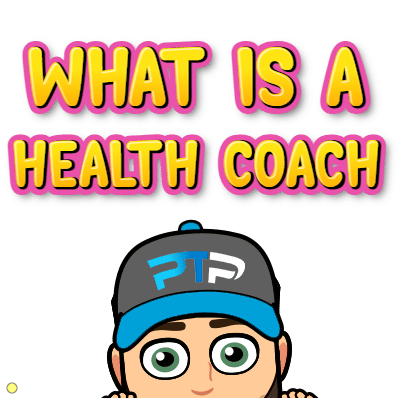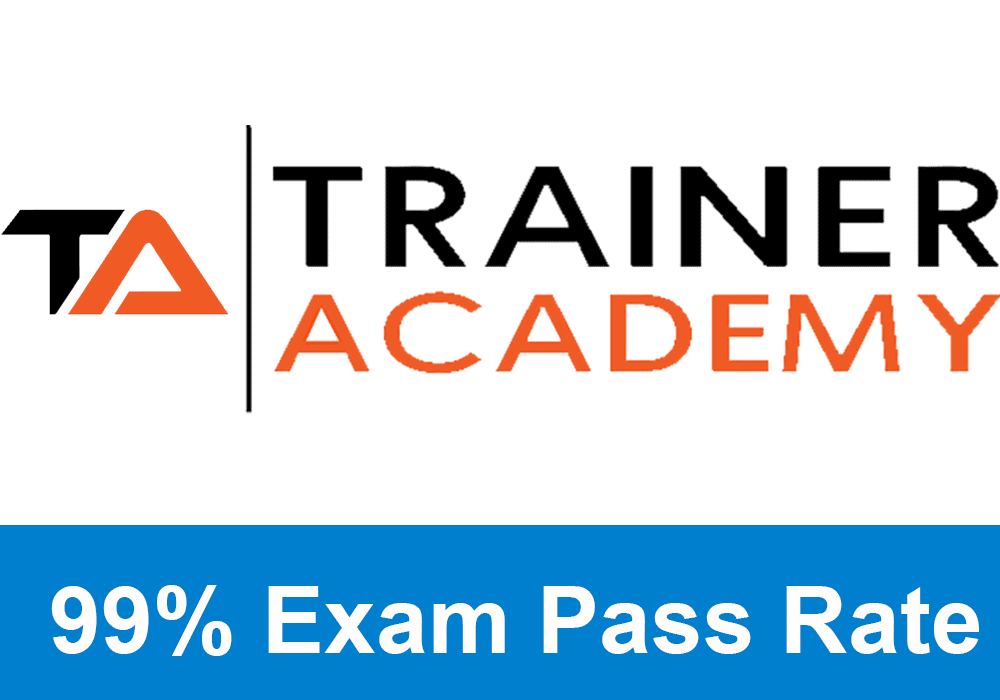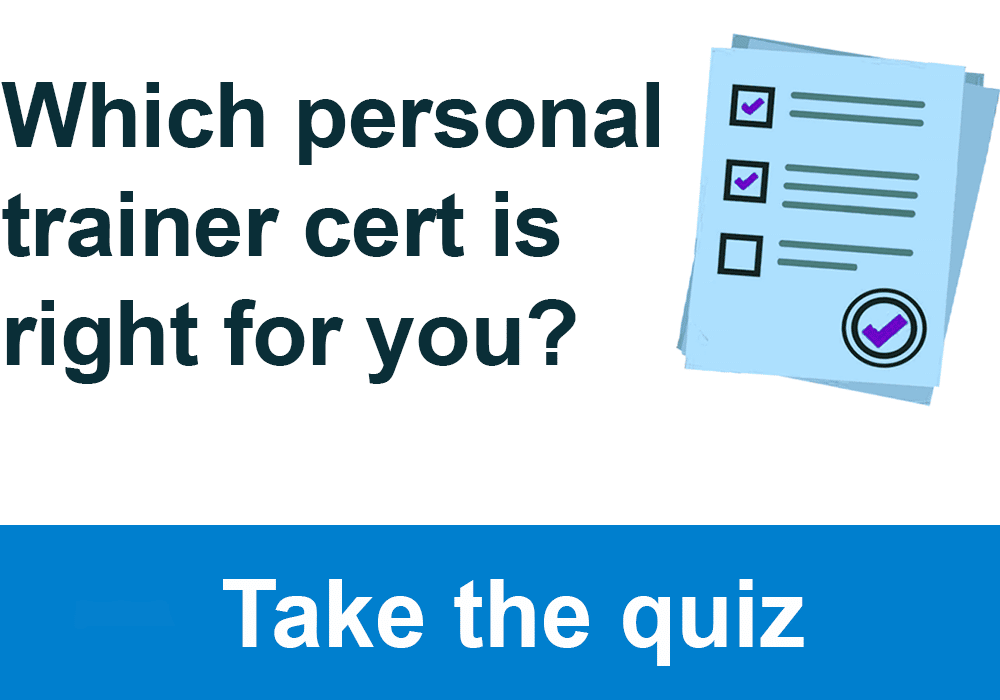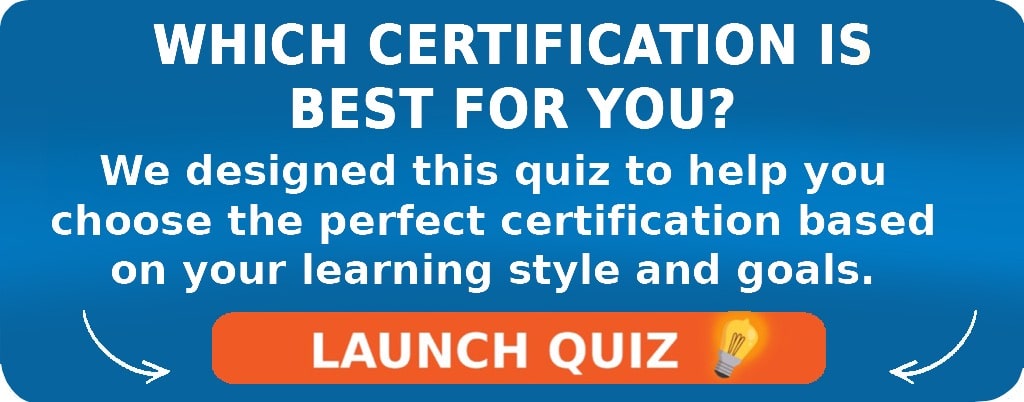Hey everybody, and welcome to another PT Pioneer article.
Today I will be breaking down “What is a health coach?”
This career path takes the best of health and fitness and the fundamentals of medical practice and merges them as one.
I’ll discuss the following:
- The Definition and Scope of Practice of a health coach
- What the actual job experience is like
- Recommended and required qualifications
- Income potential
I also highly recommend that you take the quiz and find out which health coach certification is best for your career goals.
I’ll provide insight into what it takes to become a health coach and what you can expect once you have your boots on the ground.

Definition of a Health Coach

A health coach is a health and fitness professional whose scope of expertise encapsulates all fundamental aspects of physiological well-being.
This is achieved by instructing and advising individuals to make healthier choices through sustainable habits.
Health coaches typically have a background and fitness, nutrition, and medicine qualifications.
Some might go as far as to include some psychology or counseling credentials.
That’s because a major component of successful health coaching is behavioral change and identifying psychological weak points such as trauma, disorders, or addictions.
This also extends to the mental health aspect of well-being, which has become a focal point recently.
Becoming a Certified Health Coach
To become a health coach, one will need basic credentials in health and fitness.
That means having a firm grasp of exercise and nutrition programming, instruction, and the relevant qualifications.
But that’s just the beginning.
In most cases, a health coach can only carry that title after having undergone some training in the medical field.
A qualified medical doctor is a guaranteed entry, but other medical sectors such as nursing, physiotherapy, and medical technician will suffice.
Once an individual has ticked all the above boxes regarding experience and qualification, they must get certified as a health coach.
Being a health coach is a specialized engagement that bridges the gap between medical practice and health and fitness.
You must learn how to merge all aspects into a singular practice.
Let’s look at some of the health coach certifications I would recommend.
Why Health Coaching
Health coaching is a marriage between health and fitness and medical practice, two sides of modern health care.
Both are important but are often considered in particular regard.
Health coaching aims to combine these two sides for a seamless engagement with healthy habits.
But why is this so important?
We live in a time where our health and our sense of how to maintain it are more challenging than ever before.
People need guidance and advice on improving their health in the face of it all.
For instance, the food we access most is also the most damaging to general health.
This, along with our sedentary, indoor lifestyles, has led to a sharp decline in the general ability to remain healthy naturally.
As a health coach, it is your duty and scope of practice to try and realign habits and behaviors with what works in terms of normal human health.
This is achieved through change psychology, essentially helping individuals rewire their approach and perspective regarding wellness.
Health Coach Certification: Become a Certified Health Coach
Many certifying agencies I discuss on PT Pioneer have a health coach cert specialization.
As I’ve mentioned, to be a successful health coach, you need to qualify as one.
There are a lot of nuances behind what it is a health coach. It is tasked to do.
Here are a few of my top recommended health coach certs. I’ve gone more in-depth into these and a few others in this article:
Health Coach Institute
The Health Coach Institute (HCL) is a well known organization in the health coaching world, and offers two premiere health coaching certifications. The first is the Health & Life Coach Certification, which is CEE-Accredited through the International Coaching Federation. The second option is the Pathway Program, which is a NBHWC-approved certification.
ISSA
The ISSA Health Coach Certification is perfect for personal trainers who want to add health coaching to their resume. ISSA is one of the top fitness certification providers and pioneered the art of online certifications.
Exclusive PTP CPT Offers |
||
|---|---|---|
Most Popular Cert | Best Online NCCA Cert | Best Study Materials |
Gold Standard Cert | A Good Option | Best CPT for you?  |
NSHC
The National Society of Health Coaches, or NSHC, is recognized as the gold standard when discussing Health Coaching.
Its heritage and strict policies mean that only the best candidates enter and qualify to hold a health coach’s title.
Those are just a couple of the health coach certifications currently available. I’ll give you the full scoop on my top recommendation later in the article, or you could check out my article on The 6 Best Health Coach Certifications here.
The Career of Health Coaching
Being a personal trainer, nutritionist, or registered medical provider is a more hands-on approach. A health coach does things a bit differently.
Your main objective as an HC is to provide mentoring, collaborative guidance, or advice based on your knowledge of evidence-based health and wellness principles.
Health coaches often play the role of educators and counselors when considering the prominent behavioral science aspect.
Because of your background in other aspects of wellness, health coaching allows you to approach many versatile situations.
You might find yourself dealing with clients purely from an exercise perspective, or you might approach nutrition and nothing more with another client.
As a Health Coach, you’ll also find opportunities in corporate wellness.
Corporate wellness is a set of protocols and guidelines developed as part of a company or corporation’s human resources directives.
It instills and implements healthy habits in staff and contractors to optimize productivity through health and wellness.
As a health coach, you might also find yourself playing an advisory role as a consultant.
This sort of role is typical within organizations seeking to develop their own health and wellness guidelines to be implemented internally.
Health coaching came about as a recognition by the healthcare system that other aspects of physical well-being need to be equally considered as part of prevention treatment protocols besides medical practice.
In that regard, it’s common to find health coaches forming part of a healthcare team tasked with long-term patient care and management.
A Health Coach’s Scope Of Practice
The scope of practice in any profession is a guideline of what you are legally or ethically allowed to do and based on what you are technically equipped to handle.
There are a few dos and don’ts regarding a health coach’s scope of practice.
Let’s take a look:
Do’s
- Only advise, instruct, and intervene in areas you have qualified
- Encourage clients to set their own goals and targets toward a healthy lifestyle
- Encourage clients to speak freely and openly. Your job is advice and active listening through motivational interviewing
- Instill a sense of personal accountability
- Be upfront with your client. No sugar coating and no fine print
- Refer clients to appropriate specialists outside your field of expertise
Don’ts
- Instruct the client to adopt drastic lifestyle changes such as rapid weight loss. Your job is to guide them into deciding whether or not they want to
- Diagnose or treat medical conditions or chronic disease
- You judge or characterize clients based on flaws or problem areas such as obesity or addictions
- Advice on personal matters or private affairs, even if you strongly believe they influence potential outcomes.
- Use your background or experience to inform a client’s habits and force behavior change.
How Health and Wellness Coaching Works
When someone asks how health coaching works, As a Health Coach engaging with a first-time client, you’ll want to solidify the following:
- Health goals and objectives: what the client wants, what can be realistically achieved, and the compromise between the two based on existing challenges and circumstances.
- Payment and rates: Decide and agree on how much your services will cost based on the value requested and available. Sticking to a fixed pricing strategy and allowing some wiggle room for negotiation where it makes sense. Always be upfront with what you’re charging.
- Schedule and appointments decide and agree on the time frame and the schedule within that time frame. Appointments, feedback, coaching sessions, and follow-up sessions
- Decide on how to conduct sessions and appointments. Either in-person, telephonically, or via text/email
After concluding how your client will receive your services, it’s time to get cracking.
First, you’ll need to develop a health coaching program for your client(s) to follow.
This would typically include exercise and nutrition recommendations, planning, and instruction.
A great way to assign your client their program is to deliver its milestones.
Instead of giving them the whole program, break it down into chunks or milestones based on progress.
This allows for easier expectations management and reduces your client’s risk of feeling overwhelmed by the journey ahead.
The approach of breaking down a program and delivering it in pieces also inspires motivation and confidence.
That’s because accumulating small achievements signals a more rewarding experience than a large achievement.
After developing the program and deciding on the delivery format, it’s time to get an impression from your client.
Based on your preferred communication channels and schedule, consider where your client is, especially in the beginning.
Finding out what’s good and new is a great starting point.
Allowing the client to recollect positive and progressive events gives you a good time for the session.
From there, you tackle the challenges and obstacles they are facing, which is ultimately the objective.
To conclude your sessions, offer realistic solutions and contingencies that can easily be implemented based on the program and client profile.
This positive reinforcement at the end of the session provides hope and confidence.
In between client sessions, it’s good to have a feedback or query system to help your client adhere to the guidelines and instructions you’ve set.
Of course, you don’t want this coaching aspect to be time or resource-consuming, so find a way or a policy for handling queries or feedback between your full sessions.
Exclusive PTP CPT Offers |
||
|---|---|---|
Most Popular Cert | Best Online NCCA Cert | Best Study Materials |
Gold Standard Cert | A Good Option | Best CPT for you?  |
The last thing to remember is that life and the individuals that experience it are dynamic and ever-changing.
Therefore, you should always allow flexibility in your programming and dealing with clients.
Be prepared to adjust and modify your coaching and programs.
How Much Money Can You Make As A Health Coach?
Of course, as with any career worth pursuing, much of the value is based on income.
I can gladly report that health coaching has the potential to be financially lucrative.
Right off the bat, you’re presenting as a highly qualified individual with credentials in two well-paying industries.
This combined approach ups your value proposition, especially considering how well-paying the healthcare industry can be.
According to salary.com, the US’s typical health coach earns an annual average income of $59,714.
Salary and income are, of course, dependent on several factors such as:
- Location
- Number and type of auxiliary credentials
- Level of credentials
- Level of experience
- Size and growth of the industry
- Target market
Optimizing these factors allows you to double your income from the stated average.
For example, when it comes to location, your best bet is a large Metropole, such as a major city with a high quality of life and population health rating.
This indicates a location with a good economy and a large population who are conscious and willing to spend on their wellness.
As another example, your level of credentials will also allow you to leverage your value for higher rates.
For instance, if you have a post-grad degree as part of your repertoire, you can charge more than a coach with a bachelor’s degree or no college-level education.
I’ve discussed salary in an entire article in more detail, so please check that out for the full scoop.
Also, regarding qualifications, let’s take an in-depth look at my most recommended health coach certifications.
6 Best Health Coach Certifications for 2025
1. Health Coach Institute
First on our list is the Health Coach Institute or HCI.
The curriculum is based on four modules; each described as “Digestible Pillars.”
These include:
- Nutrition
- Transformational Coaching Skills
- Personal Growth
- Business and Marketing.
This breakdown is a great way to approach the knowledge, practice, and business of Health Coaching.
The program runs for six months and is conducted strictly online.
HCI has no prerequisites, so it is open to licensed and unlicensed professionals.
The total cost for the certification program is $5,950.
2. ACE CHC
One of the HC certs I briefly mentioned is the ACE Certified Health Coach.
As stated, ACE is one of the top certifying agencies in the world and is accredited by the NCCA or National Commission for Certifying Agencies.
This is considered the national board of certifying agencies.
ACE CHC is aimed more towards health professionals whose primary focus is on fitness instead of healthcare in the medical field.
That’s why the curriculum and prerequisites don’t require much experience or credentials in the healthcare system.
Your main requirement with this one is that you hold a valid certification in fitness instruction from a recognized, accredited agency.
The ACE CHC comes in two packages, Basic and.
Each has a different amount of study resources, as you would imagine.
Basic and are priced at $999 and $1299, respectively.
3. NSHC
Another one I briefly introduced is the NSHC health coach cert.
This is possibly the pinnacle of health coaching qualifications from my research.
Using evidence-based health coaching, NSHC draws its curriculum from medical science and research fundamentals.
This is shown by the strict prerequisites that require credentials in medical practice, which include:
- Physiotherapy
- Dietetics (registered dietitians)
- Licensed medicine
- Nursing
NSHC allows you to expand your scope towards clinical interventions and strategies, working closely with specialists and infrastructure in the healthcare sector.
To study the NSHC for a year, you must fork out $595.
Membership is renewable every year at the cost of $50 after qualifying.
4. Wellcoaches School of Coaching
Wellcoaches was founded in 2002 by the American College of Sports Medicine or ACSM.
ACSM is well known as a leader in research and education regarding health and fitness. From New York to California, ACSM is the gold standard.
Suffice it to say, the Wellcoaches curriculum bears testament to that.
The actual certification is broken down into two parts. An 18-week foundational cert qualifies you for the full 10-month certification.
Wellcoaches also win when it comes to variety.
As you know, ACE CHC is geared towards fitness professionals who haven’t licensed primary care providers, while NSHC is the inverse.
Wellcoaches caters to both categories of health coaches, the licensed and unlicensed professionals.
You’re looking at the Certified Health and Wellness Coach certification for the licensed professional.
This one requires a minimum of a bachelor’s degree in a health-related field, an NCCA accredited cert, and 2000 hours of work experience.
For the unlicensed professional, you’re looking at the Certified Personal Coach.
The overall cost for any of the Wellcoaches certs is $650.
5. Duke IHC
Duke University offers a comprehensive health coach certification that emphasizes wellness principles.
Like Wellcoaches, Duke IHC requires you to take an eight-day foundational course before getting into the main program.
The prerequisites for Duke are that you hold a bachelor’s degree or higher in a health-related field and 3-5 years of experience in the healthcare sector.
The foundational course costs $4,440, while the final cert will set you back $1,440.
The total for the entire program is $5,880.
This is quite a hefty figure, but with a prestigious university’s infrastructure and academic heritage, you can rest assured that you’re getting your money’s worth.
6. Dr. Sears Wellness Institute
Dr. Sears offers the most variety when it comes to different certification options.
They offer three different health coach certs, each with varying areas of focus and scopes of practice.
The certifications on offer are:
- Adults and Seniors
- Pregnant and Nursing
- Family
Each of these will take between 6 to 36 weeks to complete depending on how many of the certs you choose to do.
The cost of each cert is $965.
For two, you will end up paying $1345; for three, the total is $1645.
There is also a master health coach certification which goes for $3000.
You will also need to recertify every year for $145/year.
Overview of Health Coach Certifications
These six certifications are featured more in-depth in a full article you can check out here.
Overall, I think your best odds at a lucrative career, specifically as a health coach, are Duke, HCI, and NSHC.
These offer a medical-grade academic experience and are at the pinnacle of health coach credentials.
Because of that and your prerequisite qualifications, you’ll have a higher value to offer clients, which means you can realistically charge more.
The other certs are great if you want to supplement your PT or nutritionist services with some added value.
This can also be leveraged towards higher pricing over and above what you would charge as a regular PT.
Conclusion
Working as a health coach presents many opportunities to assist with the overall health of individuals.
The diversity of knowledge, practical skills, and application areas allow you to work with various population groups.
You’ll be equipped to tackle issues such as:
- high cholesterol
- hypertension
- chronic conditions
- optimized goal setting
- optimized health behavior
- heart disease
- many other health conditions
By merging fitness and nutrition with medical intervention, you are equipped to deliver a seamless service in wellness.
Health coaching is also a great way to change lives and leave a lasting impact that benefits society and provides fulfillment.
There are many other health coach certs than the ones I’ve mentioned. Just make sure to keep your eyes peeled for accreditation and industry recognition.
Frequently Asked Questions (FAQs)
What does a Health Coach do?
Do you need a degree to be a Health Coach?
Some health coach certifications are available for unlicensed professionals.
How much money can you make as a Health Coach?
What is the difference between a Health Coach and a Nutritionist?
A nutritionist only provides services in the realm of dietary coaching and programming.
Who can be a health coach?
How Does Health Coaching Work?
Clients are motivated to chart their own goals with the expert assistance of an HC.
How Do You Become a Certified Health Coach?
References
- “Institute for Integrative Nutrition.” Institute for Integrative Nutrition, https://www.integrativenutrition.com/.
- “Curriculum.” Institute for Integrative Nutrition, https://www.integrativenutrition.com/curriculum.
- “Health Coaching.” Institute for Integrative Nutrition, http://www.integrativenutrition.com/health-coaching.
- “Approved Programs.” National Board for Health & Wellness Coaching, https://nbhwc.org/approved-programs/.
- “National Board for Health & Wellness Coaching.” NBHWC, https://nbhwc.org/.
- “Leadership.” National Board for Health & Wellness Coaching, https://nbhwc.org/leadership/.
- “Centers for Disease Control and Prevention.” CDC, http://cdc.gov/.
- “2017 Workplace Health in America Summary Report.” Centers for Disease Control and Prevention, https://www.cdc.gov/workplacehealthpromotion/data-surveillance/docs/2017-Workplace-Health-in-America-Summary-Report-FINAL-updated-508.pdf.
- “Integrative Health Coach Professional Training.” Duke Integrative Medicine, https://dukeintegrativemedicine.org/integrative-health-coach-training/.
- “Integrative Health Coach Professional Training.” Duke Integrative Medicine, https://www.dukeintegrativemedicine.org/integrative-health-coach-training/. (Note: This appears to be a duplicate of link #9, so it may not need to be listed again unless there’s a specific reason for doing so.)
- “What Does a Health Coach Do?” Institute for Integrative Nutrition, https://www.integrativenutrition.com/blog/what-does-a-health-coach-do.

 Have a question?
Have a question? 


Tyler Read
PTPioneer Editorial Integrity
All content published on PTPioneer is checked and reviewed extensively by our staff of experienced personal trainers, nutrition coaches, and other Fitness Experts. This is to make sure that the content you are reading is fact-checked for accuracy, contains up-to-date information, and is relevant. We only add trustworthy citations that you can find at the bottom of each article. You can read more about our editorial integrity here.